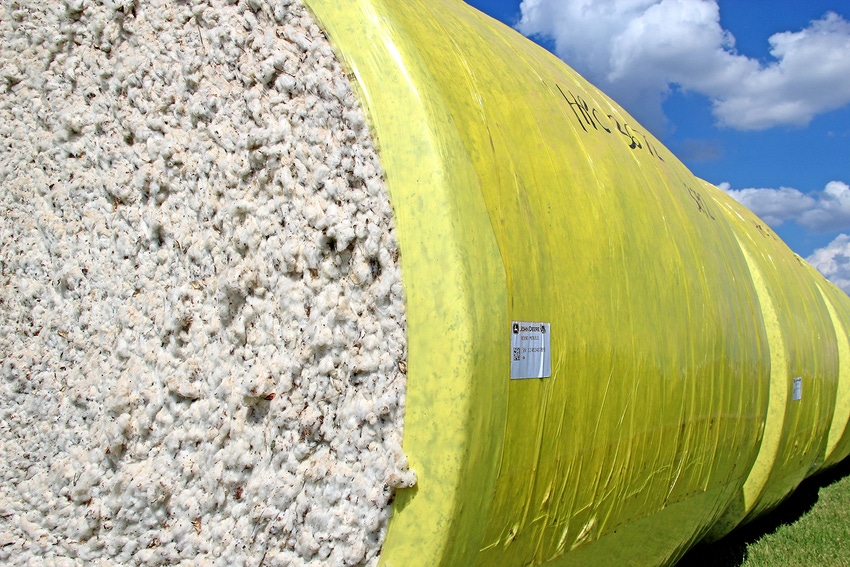April 7, 2021

It’s not a stretch to say that 2020 will go down in history as a year like no other and in response to the challenges, National Cotton Ginners Association (NCGA), as well as other gin associations, shifted to virtual meetings and disseminated COVID-19 information to member gins.
Due to the efforts of both the NCGA and member gins, work has continued with only a few reported COVID-19 cases. This lack of gin-borne outbreaks is testimony to the work done by the associations and by our ginners in the implementation of policies, as outlined in the Centers for Disease Control guidance.
The NCGA’s meetings, including the Ginning Conference, all were conducted virtually, and we had outstanding participation in these meetings. However, the three gin schools, which have occurred without fail for the last 33 years, were a casualty of the pandemic, and the difficult decision was made to cancel them. Due to so many lingering unknowns through the first part of 2021, plans are being made to conduct training seminars for individuals who would normally attend gin schools and for Certified Ginners who need continuing education credits. While not intended to take the place of gin schools, the training seminars will include topics that are important to gin employees, such as the purpose and principles of gin machinery, pneumatics, electricity, hydraulics, and, most importantly, safety.
One of NCGA’s most important goals continues to be eliminating all forms of contamination, especially plastic, from U.S. cotton. Meanwhile, there is a major concern that when some patents set to expire, there may be a rush to produce a less costly wrap that is inferior for protecting seed cotton. For the last several years, the NCGA, in fact, believed that the production of a less costly but inferior wrap would eventually become an issue, especially considering that a majority of the plastic being found is from module wrap material.
Cover standards
Interestingly, the American Society of Agricultural and Biological Engineers (ASABE) developed a rectangular module cover standard at about the same time that the round modules were rapidly gaining popularity. During the last reaffirmation of this standard, many ASABE members voiced their concerns that a round module wrap standard should be developed. Additionally, industry has been pushing to develop a standard to help reduce the contamination risk.
John Wanjura, with the USDA Agricultural Research Service’s Ginning Laboratory in Lubbock, is an ASABE member and the lead scientist who is working on the standard’s development – with the aim of reducing the contamination risk.
The objective is to develop a standard that specifies current material strength/performance levels based on the measurements of premium wrap – with the ultimate goal of determining the wrap system’s performance. Thus, the standard is to define performance of the wrap system from both the base material performance and the combined effects of 1) multi-layers, adhesives that withstand hot and cold environments, 2) applied tension, 3) length of module storage in varying environments, and 4) other factors. Because color is also an important factor in the optical detection system, if color also will be included. Testing of wrap materials is under way with the hope of amending the existing rectangular standard to help move the standard along.
While this standard is voluntary, both the National Cotton Council and the NCGA have policies that support the standard’s development and use. Hopefully, the standard will be voted on soon by ASABE members. Eventually, gins could request that producers use module wraps that meet the minimum standard of performance.
Employee retention
Finding and retaining employees is another significant ginning sector concern. Many gins are now utilizing the H-2A program to fulfill labor needs. Last year, the NCGA and several of the member gin associations fought a legal battle with the Department of Labor over the definition of the term “ginning” and over all jobs that are connected with ginning. The legal discussion also concerned whether the drivers of module trucks that are hauling seed cotton to the gins should qualify for the H-2A program.
Additionally, the gin’s ownership structure makes no difference, as independents, stockholder and cooperatives are covered. Ginning is the continuation of the harvest, and without ginning, marketable commodities, baled lint, and cottonseed would not exist. The NCGA went before an Administrative Law Judge and prevailed twice. Thankfully, we are not aware of any issues with the H-2A program as haulers confronted in 2020. However, the NCGA does have ongoing concerns regarding the Adverse Effective Wage Rate and will need to watch for any legislation or rulemaking proposed by the new administration.
Questions remain concerning the new administration and what changes it will pursue that could affect the ginning sector’s operations. There is no doubt that this will be a much more labor-friendly administration and what exactly “labor-friendly” entails remain to be seen. As an example of what is possible, during one of our meetings, a labor lawyer noted that the Anti-Retaliation Rule is very likely to be reinstated leading to the implementation of electronic recordkeeping and the Obama-era electronic uploading of the OSHA 300 and 300A documents
Regarding environmental issues, especially air quality regulations, it is a given that the new administration will focus on climate change. In addition, the administration likely will review and attempt to lower the particulate matter of the National Ambient Air Quality Standard. Additionally, targeting regulations and increased enforcement will affect the energy sectors thereby increasing energy costs the costs of transportation and agricultural inputs.
You May Also Like




